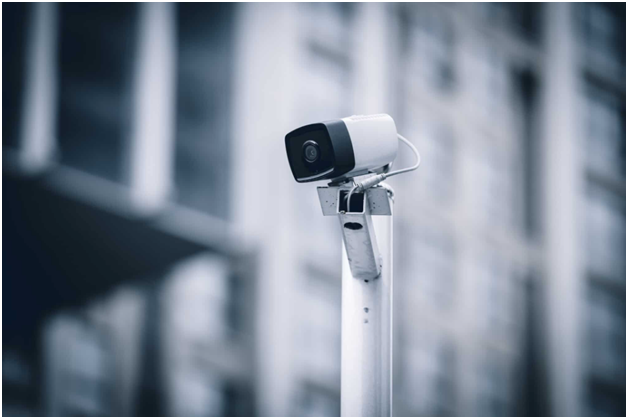Introduction:
In an era where security concerns are paramount, the use of technology to enhance safety measures has become increasingly significant. One of the most widely adopted solutions is the installation of CCTV surveillance cameras. These devices have transformed the landscape of crime prevention and community safety. This blog delves into the effectiveness of surveillance cameras in deterring crime and their broader impact on community well-being.
The Evolution of CCTV Surveillance Cameras
The journey of CCTV cameras began in the early 20th century, primarily for monitoring industrial processes. Over the decades, technological advancements have propelled these cameras into a vital tool for public and private security. Modern CCTV systems boast high-definition video, night vision, motion detection, and remote access capabilities. These features have significantly enhanced their effectiveness in monitoring and preventing criminal activities.
Deterrence Effect on Criminal Behaviour
One of the primary benefits of CCTV cameras is their ability to deter potential criminals. The presence of cameras in public spaces, businesses, and residential areas serves as a psychological barrier against crime. Knowing they are being watched, individuals are less likely to engage in illegal activities. Studies have shown a marked reduction in crimes such as theft, vandalism, and even violent offences in areas under CCTV surveillance. This preventative effect is a crucial component of modern security strategies.
Real-Time Monitoring and Rapid Response
CCTV surveillance cameras provide real-time monitoring capabilities, enabling swift responses to incidents. Security personnel or law enforcement can observe live feeds and act immediately if suspicious behaviour is detected. This rapid response can prevent crimes from escalating and ensure that emergency services are dispatched promptly. The ability to monitor multiple locations simultaneously enhances the efficiency of security operations, contributing to a safer environment.
Evidence Collection and Prosecution
Beyond prevention, CCTV cameras play a critical role in the aftermath of a crime. High-quality video footage serves as invaluable evidence in investigations and legal proceedings. The visual record can corroborate witness statements, identify suspects, and provide a timeline of events. This evidentiary value not only aids in prosecuting offenders but also acts as a deterrent, knowing that criminal actions are likely to be recorded and used in court.
Enhancing Community Confidence
The presence of CCTV cameras can bolster community confidence in safety measures. Residents and business owners feel more secure knowing that their surroundings are being monitored. This increased sense of security can foster a stronger community spirit and encourage public engagement in crime prevention initiatives. When people feel safe, they are more likely to participate in communal activities and support local businesses, contributing to the overall vibrancy and cohesion of the neighbourhood.
Balancing Privacy and Security
While the benefits of CCTV surveillance cameras are substantial, it is essential to address concerns regarding privacy. The proliferation of cameras raises questions about the potential for invasive monitoring and the erosion of personal freedoms. To balance security needs with privacy rights, it is crucial to implement clear guidelines and regulations governing the use of CCTV. Transparency in camera placement, data handling, and access controls can help mitigate privacy concerns and ensure that surveillance practices adhere to ethical standards.
Community Collaboration and Engagement
The successful implementation of CCTV cameras often relies on community collaboration and engagement. Residents and local businesses can play a pivotal role in identifying key areas that require monitoring and in supporting the maintenance of these systems. Community watch programs and partnerships with local law enforcement can enhance the effectiveness of CCTV surveillance, creating a more comprehensive security network. Public awareness campaigns can educate citizens about the benefits and proper use of surveillance systems, fostering a cooperative spirit and a shared commitment to safety.
Addressing Technological and Ethical Challenges
Despite the advantages, the deployment of CCTV cameras presents technological and ethical challenges that must be addressed. Ensuring the reliability and integrity of surveillance systems is paramount, as technical failures or breaches can undermine their effectiveness. Regular maintenance, updates, and cybersecurity measures are essential to protect against hacking and data theft. Ethically, the use of advanced features like facial recognition requires careful consideration and regulation to prevent misuse and discrimination. Policymakers and industry leaders must work together to establish frameworks that safeguard civil liberties while maximising the security benefits of CCTV technology.
Technological Advancements and Future Trends
The future of CCTV cameras is poised for further innovation. Emerging technologies such as artificial intelligence, facial recognition, and advanced analytics are set to revolutionise the capabilities of surveillance systems. These advancements promise to enhance the accuracy and efficiency of monitoring, making it possible to detect anomalies and predict potential threats with greater precision. As these technologies evolve, it is essential to continually assess their impact on privacy and ethical considerations.
Conclusion:
The role of CCTV surveillance cameras in crime prevention and community safety is multifaceted and profound. These devices have proven to be effective deterrents, essential tools for real-time monitoring, and invaluable sources of evidence. By enhancing community confidence and enabling rapid responses, CCTV systems contribute significantly to a safer environment. However, it is crucial to balance the benefits with privacy concerns, ensuring that surveillance practices are conducted responsibly and ethically. As technology continues to advance, the potential for CCTV cameras to further enhance security measures is vast, promising a future where communities can feel even safer and more protected.







